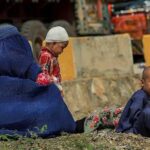A new report published by the World Bank (WB) on Tuesday called attention to the rising national poverty rate in Pakistan, highlighting the need for sustained and people-centred reforms to protect vulnerable populations.
The report, titled “Reclaiming Momentum Towards Prosperity: Pakistan’s Poverty, Equity and Resilience Assessment”, marks the first comprehensive evaluation of poverty and welfare trends in the country since the early 2000s, according to a WB press release today.
According to the release, the national poverty rate has begun to rise again since 2020, after a steady decline from 64.3 per cent in 2001-02 to 21.9pc in 2018-19.
“This is largely owing to compounding shocks — including COVID-19, inflation, floods, and macroeconomic stress — but also because the consumption-driven growth model that delivered early gains has reached its limits,” it said.
The report explored data from 25 years of household surveys, now casted projections, and geospatial analysis, as well as unique sources of administrative data.
The Household Integrated Economic Survey (HIES) informed the WB’s official poverty estimates. Beyond the latest available survey round in 2018-19, it used microsimulation models to project estimates, saying that new poverty estimates and trends would be produced after the release of the recently collected HIES 2024-25 data.
The WB found that the reduction of poverty was primarily a result of rising income from non-agricultural labour, with more households moving from farm work to service jobs.
“However, slow and uneven structural transformation has hindered diversification, job creation, and inclusive growth,” it said, adding that this resulted in low productivity across sectors that constrained income growth. It also pointed out that over 85pc of jobs remained informal and women and youth remained “largely excluded” from the labour force.
Other observations included that nearly 40pc of children were stunted and that a quarter of primary-school-aged children were out of school, while 75pc of those attending primary school had very limited reading comprehension skills.
Additionally, the report found a widespread deficit in public services, with only half of all households having safely managed access to drinking water in 2018 and 31pc lacking safe sanitation.
“The report underscores systematic, complex, and persistent spatial disparities in welfare across Pakistan,” the press release said. “Rural poverty remains more than twice as high as urban poverty, and many districts that lagged behind decades ago continue to do so today. Furthermore, unplanned urbanisation has led to ‘sterile agglomeration’ — crowded settlements with low living standards.”
The WB report called for “sustained and people-centred reforms” to protect vulnerable families, improve livelihood opportunities, and expand access to basic services to alleviate these concerns.
One of the lead authors of the report, Senior Economist Christina Wieser, said, “Reforms that expand access to quality services, protect households from shocks, and create better jobs — especially for the bottom 40pc — are essential to break cycles of poverty and deliver durable, inclusive growth.”
The report outlined four pathways to restoring progress in the fight against poverty. It highlighted the need for investment in people, places and public services, accompanied by strengthening local governance, and advocated for responsive and inclusive safety nets to increase household shock resilience.
It also stressed the importance of progressive fiscal measures, including improving municipal finance and targeting investment in the poorest of the country, and recommended investing in timely data systems to support efficient decision-making processes and track progress.
“It will be critical to protect Pakistan’s hard-won poverty gains while accelerating reforms that expand jobs and opportunities — especially for women and young people,” said Bolormaa Amgaabazar, World Bank Country Director for Pakistan.
“By focusing on results — investing in people, places, and access to opportunities; building resilience against shocks; prioritising fiscal management; and developing better data systems for decision-making — Pakistan can put poverty reduction back on track.”
In January, the World Bank pledged to provide $20bn to Pakistan under a 10-year country partnership framework (CPF) to support inclusive and sustainable development within the country.
Discover more from Brackly News
Subscribe to get the latest posts sent to your email.


